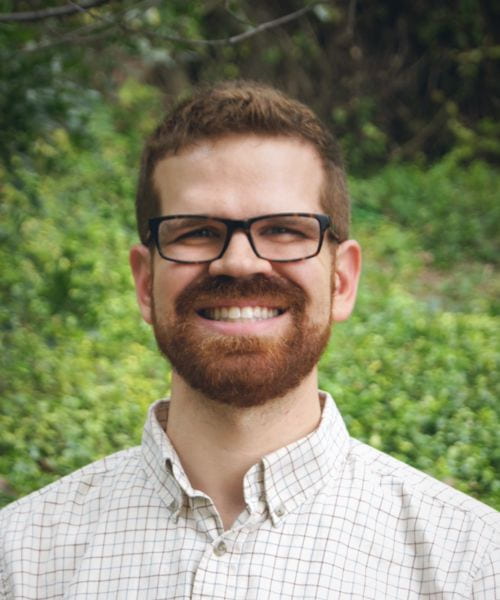In a previous post, I started a discussion about the Teaching Space of Tomorrow. Be sure to check out that post if you need to get caught up.
Listen to a recording of this post:
As we imagine the Teaching Space of Tomorrow, we cannot afford to sit back and just think about it. We need to become engaged. Now, part of imagining is to adopt a creative mindset, which includes envisioning our destination and working backwards from it. This creates a design journey. The journey must involve elements of empathy with the intended users, for any hope for success.
To that end, we launched an RFP to bring onboard a Texas State faculty member to not only become an Instructor In Residence in the Teaching Space of Tomorrow, but to help design it.
 We are thrilled to announce that Dr. Seth Frei has accepted the nomination. He will be working in close collaboration with ITAC’s Learning Spaces team, led by Brian Shanks, and with Dr. Gwen Morel, from the Office of Distance and Extended Learning.
We are thrilled to announce that Dr. Seth Frei has accepted the nomination. He will be working in close collaboration with ITAC’s Learning Spaces team, led by Brian Shanks, and with Dr. Gwen Morel, from the Office of Distance and Extended Learning.
In his proposal, Dr. Frei articulated the following vision, rooted in President Lyndon B. Johnson’s speech during his commencement address at the University of Michigan:
“‘We must seek an educational system which grows in excellence as it grows in size. This means better training for our teachers…It means exploring new techniques of teaching, to find new ways to stimulate the love of learning and the capacity for creation.’ I hope to be the 2021-2022 Instructor-In-Residence for the Teaching Space of Tomorrow to fulfill President Johnson’s call to explore new techniques of teaching and stimulate the capacity for creation.”
Furthermore, Dr. Frei will look for ways to engage with students at a distance in processes in discussion facilitation, including methods that would allow typically unheard voices in the classroom to be heard. In addition, he will work with the support of the project team, on the evaluation of options to incorporate VR in teaching and consider accessibility to these technologies.
This project will follow a prototyping and iterative methodology by necessity since we all are exploring new frontiers. We look forward to our engagement with Dr. Frei as we seek to empower our faculty to envision and transform teaching and learning at Texas State University.
Dr. Carlos Solís is Associate Vice President of the Technology Innovation Office.


